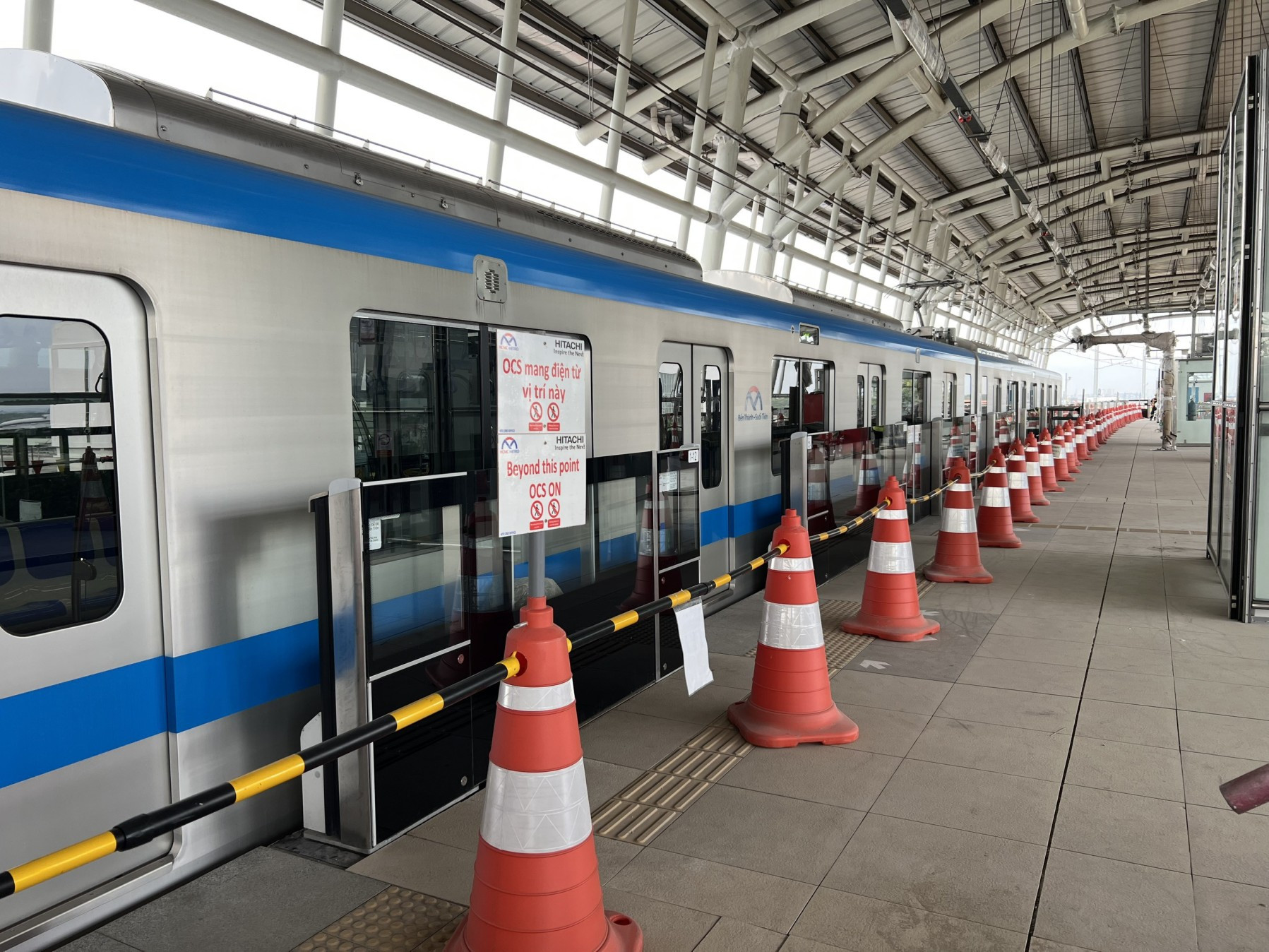
The trial run was conducted last week on the 9km elevated route from Suoi Tien to Binh Thai Stations. The trip lasted 15 minutes.
In 2007, the first metro line in HCM City (Ben Thanh – Suoi Tien) kicked off with estimated cost of VND17.387 trillion. Two years later, project consultant NJPT from Japan said that the cost would rocket to VND47.325 trillion, including Japan’s ODA (official development assistance) of 88.4 percent, or VND41.834 trillion, and the remaining as HCM City’s reciprocal capital. This affected the implementation of the project.
In August 2012, construction officially began, scheduled to be completed after six years but then set to 2020. The delay was attributed to slow site clearance and the need to re-establish technical design for the underground station of Ben Thanh, integrated with metro lines No 1, 2, 3A and 4.
In 2018, the Vietnam State Audit found violations associated with the project, stressing that the HCM City People’s Committee’s decision to adjust the project did not comply with formalities.
In principle, when delaying the implementation for one year or more, the government will have to report to the National Assembly for consideration and approval.
In November 2019, total investment for this project increased again to VND43.757 trillion and completion was scheduled by Q4/2021. Because of Covid-19, the completion was again delayed until late 2023, or early 2024.
Many problems
In 2018, the metro project could not reach the finish line as expected, while troubles occurred.
The first was related to approval of investment capital and capital capital disbursement, resulting in late payment to construction and consultation units.
Also, problems for the CP1a package were reported. The State Audit said that adjustment of the design did not comply with procedure. Later, the project investor suffered personnel crisis in the board of management when up to 50 employees asked for resignation, including the head of HCM City Management Authority for Urban Railways (MAUR) Le Nguyen Minh Quang.
In early 2019, Quang’s resignation was approved. The municipal authorities appointed Bui Xuan Cuong, who was then Director of the HCM City Transport Department, to the post (Cuong is now Vice Mayor of HCM City). Cuong, after taking the ‘hot seat’, together with MAUR, dealt with a lot of problems to run the project.
In late October 2020 and early 2021, MAUR discovered some other technical problems. The investor affirmed that the SCC joint name must take responsibility for this.
Expectations
The problems of the project are being solved. It is expected that the line can be put into commercial operation in late 2023 or early 2024.
The huge workload was done by MAUR and Japanese contractors in 2022, including the importing of 17 trains in May, a trial run in Depot Long Binh area (Thu Duc City) in late August, and returning to the ground of Le Loi Road in early September. So far, 93 percent of the workload, capitalized at VND43.7 trillion, has been implemented.
HCM City will have 8 metro lines and 3 tram lines or monorail. The total length of the entire urban railway system is about 220 kilometers with estimated investment of nearly $25 billion.
Tran Chung